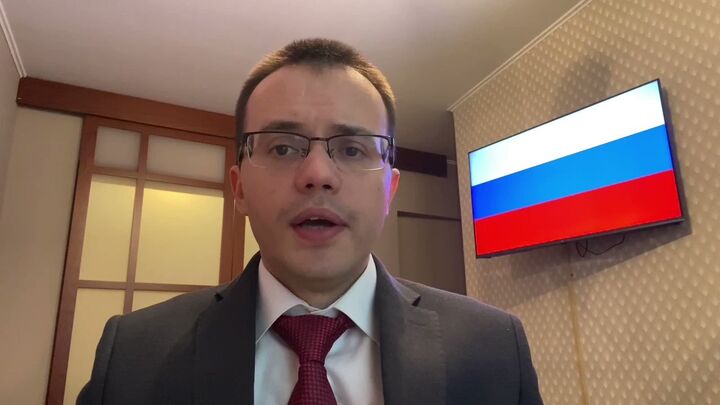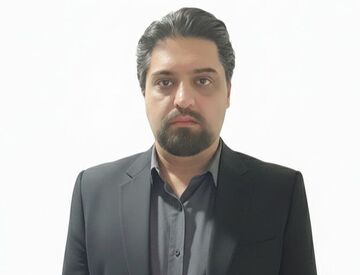Tehran (Bazaar) - Formal membership in BRICS, will enable Iran to more effectively coordinate their shared goal of accelerating financial multipolarity processes like through the expanded use of national currencies, Andrew Korybko, Moscow-based American political analyst with a PhD from MGIMO, tells Bazaar in an exclusive interview.
He also says that Iran will now have frequent and privileged access to a wide range of its policymaking counterparts from those countries.
The whole interview is as follows:
Bazaar: What is the importance of Iran becoming a BRICS member considering the existing sanctions?
Korybko: Formal membership in BRICS imbues countries with the right to participate in all the group’s meetings across the year ahead of its annual summit. Russia plans around 200 of them before next year’s Kazan Summit so Iran will now have frequent and privileged access to a wide range of its policymaking counterparts from those countries. This will enable its to more effectively coordinate their shared goal of accelerating financial multipolarity processes like through the expanded use of national currencies.
Bazaar: To what extent does Iran's membership in BRICS affect the position of the dollar in international transactions?
Korybko: Iran, alongside Saudi Arabia and the UAE, is a major energy exporter. If these three West Asian states sell their resources in non-dollar-denominated currencies like the yuan, then it’ll hasten the dollar’s demise as the global reserve currency.
It’s premature to predict when that’ll happen, but it’s practically a guaranteed that it’ll eventually occur. From Iran’s perspective, it would also be wise to sell in its own currency as well as rubles and rupees since Russia and India are very close partners too.
Bazaar: What is the role of powers such as Russia and China, which are the main leaders in creating a new world order and the formation of a multipolar world, in this association? What effect will Iran's membership in BRICS have on the development of relations between Iran & Russia?
Korybko: The Sino-Russo Entente is supercharging multipolar processes in all dimensions, but the first specializes in the economic-financial sphere while the second focuses mostly on the military-strategic one.
This division of labor is due to their unique roles in the global systemic transition and differing relations with the US: China is fighting a trade war with the US while Russia is fighting a proxy war with it in Ukraine.
Iran’s relations with both are naturally expected to further strengthen through its BRICS membership. It's important not to forget India’s role in the global systemic transition, however, since it’s the third part of the Russia-India-China (RIC) core of BRICS.
Although its ties with China are complicated by their unresolved border dispute, this South Asian Great Power bravely resisted the US’ pressure to become its proxy against the People’s Republic, not to mention its defiance of American demands to sanction Russia.
Of note, India is also the world’s fifth-largest economy and its fast-growing major one. The RIC triangle is complex, but it’s nevertheless the true catalyst of the global systemic transition. As regard’s Iran’s interests, India plays a crucial role in the North-South Transport Corridor (NSTC) across the Islamic Republic and Caspian Sea to Russia, which is one of Eurasia’s most promising trade routes.
President Putin also said in his speech during the BRICS Business Forum that the NSTC can facilitate Russian-African trade. It’s therefore crucial for Iran to further strengthen ties with India too.
Bazaar: The long-neglected Global South is becoming an increasingly powerful and assertive stakeholder in global politics, with policymakers and businesses in the West having to adapt. What is your opinion about this?
Korybko: It’s long overdue for the Global South, which represents the majority of the international community, to assume its rightful place in all institutions and systems. The West has dominated them for far too long and exploited its leading position to subjugate those countries through these means.
BRICS represents the best chance to gradually reform the global financial system in order to make it fairer and with a view towards speeding up related reforms in other global systems like governance via the UN.
Bazaar: Will BRICS merge with the Shanghai Cooperation Organization (SCO) in the future?
Korybko: Despite the hype about this scenario over the summer from some leading Alt-Media influencers, it remains wishful thinking for the time being to expect those two to merge into a single structure.
The SCO already has enough difficulty fulfilling its original goal of strengthening security and political cooperation between its members due to issues between China-India, India-Pakistan, and Kyrgyzstan-Tajikistan, which will become even more challenging if it expands to other pairs of countries with bilateral issues.
As a founding member of BRICS, India likely won’t consent to Pakistan joining without Islamabad first resolving the Kashmir Conflict according to Delhi’s wishes, especially since their continued tensions over that disputed territory impedes any chance of meaningful economic cooperation between them.
Just like those two simultaneously joined the SCO as part of an informal deal between its joint Sino-Russo founders, so too did Egypt and Ethiopia likely just join BRICS as part of a deal despite their tensions. Many in Ethiopia suspect Egypt of backing the TPLF during the 2020-2022 conflict, while Egypt accuses Ethiopia of weaponizing the Grand Ethiopian Renaissance Dam.
Those two’s tensions won’t affect economic-financial ties with their newfound BRICS partners, but they’ll likely impede any chance of meaningful security and political cooperation with one another via the SCO. They could theoretically join via a similar Indo-Pak deal, but the point is that this could further weaken the SCO’s effectiveness.
Basically, the existing security and political issues between the SCO’s three previously mentioned pairs of countries has already adversely affected some of the group’s functions, and this will only become more acute if other pairs of countries like Egypt-Ethiopia with their own associated problems one day join too.
For these reasons, BRICS and the SCO will likely remain separate even if there’s growing overlap between them since their functions are still distinct enough to not make either of them redundant.
Bazaar: How do you see BRICS 2023 in general?
Korybko: The latest summit was a success since it showed that the BRICS Five were able to reach consensus on more than doubling their group in spite of their respective economic-financial differences and the security-political ones that China and India have with one another. BRICS’ dynamics qualitatively changed, future consensus on major issues will naturally become more challenging to reach, but a larger number of countries will now meaningfully contribute to accelerating financial multipolarity processes.
That aforesaid goal is the common denominator between this group’s increasingly diverse members, which will hopefully keep them focused on this shared vision no matter what differences might eventually arise between some of them. As long as they don’t get distracted and agree to continue leaving bilateral disputes outside the BRICS ambit following China and India’s impressive example during this summit, they’ll stand a high chance of succeeding with time.
Along the way, they’ll expand the use of national currencies in bilateral trade, inevitably begin buying energy from fellow members in non-dollar-denominated currencies, make progress on establishing an inclusive non-Western SWIFT-like payment system, and achieve other sorts of financial multipolar milestones. The coming year’s 200 or so events that are planned to be hosted by Russia will establish the group’s new tempo and related customs going forward, which will shape its dynamics for years to come.
















نظر شما